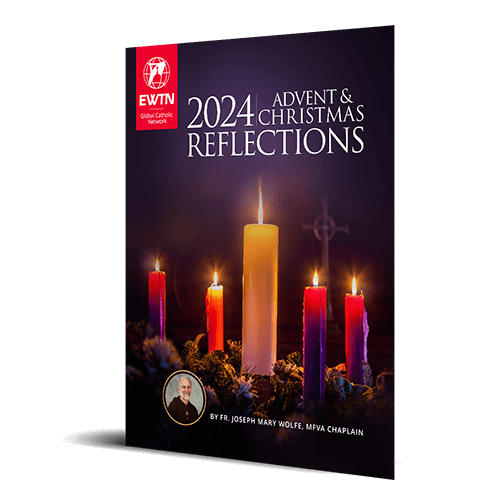EWTN Faith Journey
As we deepen our relationship with the Eternal Word, Jesus Christ, we grow in grace and are transformed by His love and mercy.
It is therefore Jesus Christ Himself who is the source as well as the object of the liturgy; and hence the ecclesiastical year, which we have undertaken to explain in this work, is neither more nor less than the manifestation of Jesus Christ and His mysteries, in the Church and in the faithful soul. It is the divine cycle, in which appear all the works of God, each in its turn: the seven days of the creation; the Pasch and Pentecost of the Jewish people; the ineffable visit of the Incarnate Word; His sacrifice and His victory; the descent of the Holy Ghost; the holy Eucharist; the surpassing glories of the Mother of God, ever a Virgin; the magnificence of the angels; the merits and triumphs of the saints. Thus the cycle of the Church may be said to have its beginning under the patriarchal Law, its progress under the written Law, and its completion under the Law of love, in which, at length, having attained its last perfection, it will disappear in eternity, as the written Law gave way the day on which the invincible power of the Blood of the Lamb rent asunder the veil of the temple.

"*" indicates required fields
As we deepen our relationship with the Eternal Word, Jesus Christ, we grow in grace and are transformed by His love and mercy.